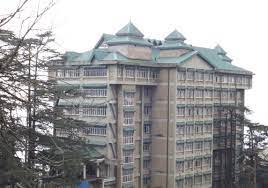Hindu Marriage Act, 1955 – Section 28, 13-B – Family Courts Act, 1984 – Section 19 – Divorce by Mutual Consent – Challenge to – Mutual Consent Divorce – Dissolution of Marriage – Cooling Period- Recording of Statements- Family Court Procedure – High Court Direction.
The appellant husband asserts that the lower court failed to follow due procedure, alleging non-recording of statements and failure to waive the cooling period.The appellant cites Supreme Court judgments emphasizing the necessity of recording parties’ statements for granting a divorce decree by mutual consent. However, the court finds no necessity to reiterate these precedents, given their similarity to the current case.
Upon perusal of Section 13-B and relevant case law, the court outlines the procedural requirements for mutual consent divorce, including the need for a joint petition, living separately, and mutual agreement to dissolve the marriage.The court acknowledges the appellant’s contention regarding the non-recording of statements by the Family Court. However, it highlights that the parties previously agreed to dissolve their marriage by mutual consent, as evidenced by statements recorded before a mediator and the High Court.
Notably, the High Court directed the Family Court to pass a decree based on these statements, indicating no need for fresh recordings. This directive was never challenged, thus binding on the parties. The appellant’s argument regarding non-compliance with the cooling period is dismissed, considering the irreparable breakdown of the marriage. Appeal dismissed. (Para 11)
HIGH COURT OF HIMACHAL PRADESH
2023 STPL(Web) 354 HP
[-]
Rohit Kalia Vs. Smt. Sangita Sharma
FAO (FC) No.53 of 2021-Decided on 28-11-2023
https://stpllaw.in/wp-content/uploads/2024/05/2023-STPLWeb-354-HP.pdf







